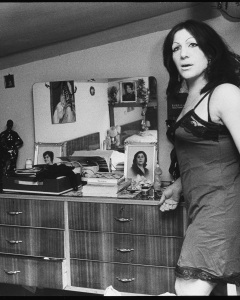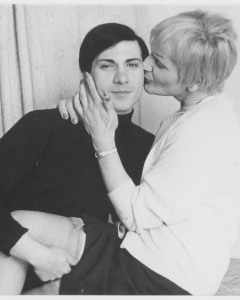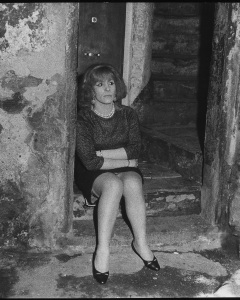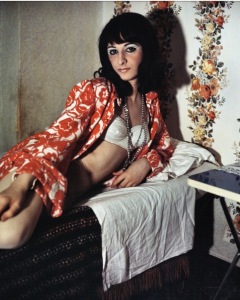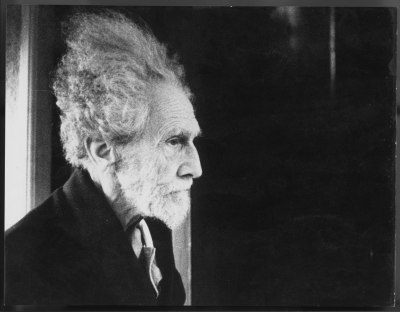Lisetta Carmi
For Lisetta Carmi, the language of photography has been an instrument of political commitment and existential research since the 1960s. Her photos cast an unprecedented glance on themes that were considered forbidden at the time, such as the famous series I Travestiti (Transvestites), realised between 1965 and 1972 on the world of transsexuals, outcast but sought-after creatures who lived in the Genoese slums. Carmi became their fellow confidant and friend: she photographed them with empathy and disarming innocence in their everyday life, exactly as they wanted to be photographed.
There are 11 images by Lisetta Carmi (3 in the collection) that make up the entire series on Esra Pound. The famous American poet had exiled himself from society and lived hidden and isolated in the hills near Genoa. Carmi, commissioned to make a portrait, finds him thanks to the help of the farmer who had rented him the cottage. She is quick to catch the poet’s surprise and shoots what she can before he closes in on his refuge. The result are these images, the last that Pound granted to the world.
LISETTA CARMI began taking pictures in the 60s. Photography would become a tool of political activism and existential exploration for her. Her photo stories intensely penetrate the life of the subjects she meets, as in the feature on the port of Genoa (1964). Her photos brought a fresh outlook on themes considered a taboo at the time, as in the book I travestiti (1972), or in the childbirth sequence photographed in the Galliera hospital. She has travelled extensively in Italy and abroad – Latin America, Israel, Palestine, Afghanistan and India. In 1966, she received the “Niepce Prize” for her portraits of Ezra Pound. Her book Acque di Sicilia, with texts by Leonardo Sciascia, won the “World Book Award” at Leipzig. This was her final work before leaving photography to dedicate herself to spirituality. * She was born in 1924 in Genoa and lives in Apulia where she founded an Ashram.

